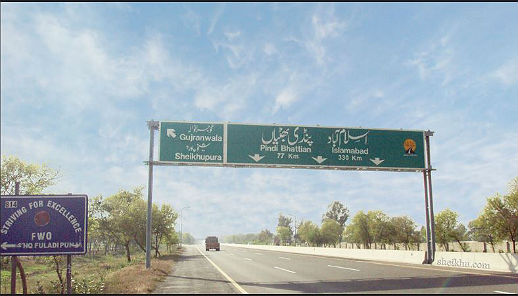
flickr (photo by Sheikhu)
Two blasphemy cases lodged against Pakistani Christians accused of desecrating Islamic scriptures have been dropped in the past week.
The cases related to alleged offences under Pakistan’s controversial blasphemy laws and were registered in separate incidents, hundreds of miles apart. In both cases Christians were initially suspected of the crime of desecrating Muslim religious scriptures. However, the timely intervention of influential people, and sensible handling by the police, resulted in no arrests being made.
In the first reported incident, on 28 October, a partially burned and torn copy of the Quran was found in an abandoned house next to a Christian family’s home in Manawala, Sheikhupura.
Parvaiz Masih, 50, told World Watch Monitor that his wife Azra Bibi returned home from her duty as a cleaner around 1.30pm and noticed that smoke was rising from the adjacent house. The house is owned by Anwar Khan and Irfan Khan, who use it only as a storeroom while their families live next door.
In the evening clerics and police were called to the scene. A case was registered at Manawala Police Station (no. 416/16); the case file noted:
“Few pages of the Qur’an were found the courtyard of the house owned by Anwar Khan Lodhi. The house is lying vacant for about two or three months. On further search, the Holy Qur’an was found in the washroom with a ewer on it; an unidentified person has committed desecration.”
Parvaiz Masih said that when a mob had gathered, and the police were searching the house, an unknown cleric pointed to their house saying that the Christian family should be investigated. However, Irfan Khan Lodhi confidently stated that the Christians could never indulge in any such act of desecration and there was no further discussion at that time.
Masih said, “Two days later, an unidentified person called me on the phone and said that he was the ‘in-charge of the police station’ and that a case had been registered against me. It really unnerved me and I told my brother that a case has been lodged but I had no courage to go to the police station. But then I thought that as none of us was there [at the time], so no crime could be attributed to us.
“I work as a sweeper in a bank and there are cameras etc. for verification of my presence there. Also, my wife works as a cleaner in a nearby maternity hospital. When she came home, the fire was already lit up.
“I asked my wife to request her employer, a very influential person in the area, to check with the police station if we were named in the First Information Report. Her employer confirmed that the case was registered against unknown persons and that our family did not need to flee from the area or fear any backlash.
“Three days later a local meeting was called to ascertain who committed the crime. In that meeting one Muslim family assured the participants that they would take an oath, while placing their hands on the heads of their children, as a sign of complete trust in us. Then Abu Obaid, a famous local lawyer, gave full guarantee that Christians in the area were not involved and if ever proved, he could stand accused of the crime. Similarly, Irfan Khan, brother of Anwar Khan, assured the gathering that Christians were not involved. Irfan Khan said that they are living with us for the last 40 years and they haven’t done ever anything like this.”
Masih’s family, however, has a longstanding issue over the ownership of their house. “Our relatives were living in Manawala so my parents decided to come here in 1974,” says Masih. “My father worked as a labourer, known as seipi,* for Abdul Rehman Khan. In 1979, my father paid 10,000 rupees [USD 1,000] for a plot of about 300sq. yards. Because the price was paid in small installments, the house was never transferred to us. In the process of time, Khan senior died and then my father died too. Khan’s four sons inherited his property and we have repeatedly requested him to transfer the land but still this matter has lingered on. Still we serve as laborers because the house is not transferred to us.”
Second incident
A week before, about 1000 kilometres away in Quetta, six-year-old Ayan Masih and his mother Shakeela Bibi, a nurse in the town’s Civil Hospital who lives in the hospital’s hostel, were suspected of desecrating pages of religious significance. The security forces picked them up but released them after local clerics got involved.
Balochistan Assembly member Barkat Masih told World Watch Monitor: “Shakeela’s husband works in Lahore. On 20 October, a few pages related to the Hajj were found desecrated outside Shakeela’s apartment, so slowly a mob had gathered.
“Before any untoward incident could take place, security forces took in Shakeela and her son, but released them after a thorough investigation,” National Assembly member Asiya Nasir told World Watch Monitor. “There has been no case registered of blasphemy in the province but it seems that extremist trends are spreading from across the country and penetrating into Baluchistan too – which is considered a less religiously-inclined place.”
*Under the atharhi/seipi system, Pakistani Christians, historically forced into degrading occupations and often uneducated, are forced into bonded labour by advance loans. These loans are used to keep them as bonded labourers because they never earn sufficient sums to pay off this debt.